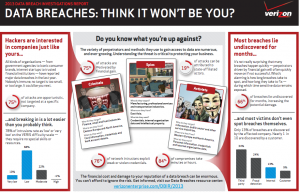Jim Sensenbrenner’s Horseshit Claims of Innocence
The reaction from members of Congress to the revelation that the Section 215 surveillance was just as bad as some of us have been warning has varied, with Dianne Feinstein and Saxby Chambliss reiterating claims about the value and oversight of the program (though not having any idea, according to DiFi, whether it has prevented any attacks), and Ron Wyden and Mark Udall effectively saying “I told you so.” John Boehner dodged aggressively, suggesting even though he had approved this surveillance President Obama had to explain it.
Asked whether lawmakers should answer for an order that fell under the Patriot Act they passed, Boehner disagreed. “The tools were given to the administration, and it’s the administration’s responsibility to explain how these tools are used,” he said. ”I’ll leave it to them to explain.”
By far the most disingenuous, however, was Jim Sensenbrenner, who (as he has emphasized to the credulous journalists who served as his stenographers today) wrote the PATRIOT Act, who has remained in a senior position on House Judiciary Committee since that day, and who now claims to be shocked — shocked! — there is dragnet collection going on in the casino he built.
Predictably, he wrote a letter demanding to know how a law he has fought to retain its current form could be used to do what the law authorizes.
In the letter, Sensenbrenner de-emphasizes the role of the relevance standard to the collection.
To obtain a business records order from the court, the Patriot Act requires the government to show that: (1) it is seeking the information in certain authorized national security investigations pursuant to guidelines approved by the Attorney General; (2) if the investigative target is a U.S. person, the investigation is not based solely on activities protected by the First Amendment; and (3) the information sought is relevant to the authorized investigation.
Compare that to the letter of the law, which requires the government to show,
(A) a statement of facts showing that there are reasonable grounds to believe that the tangible things sought are relevant to an authorized investigation (other than a threat assessment) conducted in accordance with subsection (a)(2) to obtain foreign intelligence information not concerning a United States person or to protect against international terrorism or clandestine intelligence activities, such things being presumptively relevant to an authorized investigation if the applicant shows in the statement of the facts that they pertain to—
(i) a foreign power or an agent of a foreign power;
(ii) the activities of a suspected agent of a foreign power who is the subject of such authorized investigation; or
(iii) an individual in contact with, or known to, a suspected agent of a foreign power who is the subject of such authorized investigation;
That is, the emphasis is not on the investigation, as Sensenbrenner’s interpretation would have it, but on the relevance of the information sought, which Sensenbrenner adds third. More importantly, Sensenbrenner omits all mention of the presumptively relevant conditions — basically something pertaining to a foreign power.
With his interpretation, Sensenbrenner has omitted something baked into Section 215, which is that so long as the government says this pertains to foreign spies or terrorists, the judge has almost no discretion on whether information is relevant to an investigation.
Then Sensenbrenner points to 2011 testimony from Acting Assistant Attorney General Todd Hinnen, who he claims said the following:
Section 215 has been used to obtain driver’s license records, hotel records, car rental records, apartment leasing records, credit card records, and the like. It has never been used against a library to obtain circulation records. . . On average, we seek and obtain section 215 ordersless than 40 times per year
Which Sensenbrenner uses to claim the Department never told the Committee about this dragnet.
The Department’s testimony left the Committee with the impression that the Administration was using the business records provision sparingly and for specific materials. The recently released FISA order, however, could not have been drafted more broadly.
As it happens, Hinnen has been testifying since at least 2009 that Section 215 authorizes other secret programs. So I checked Sensenbrenner’s work. Here’s what that precise passage of Hinnen’s testimony says, without the deceitful ellipsis.
Section 215 has been used to obtain driver’s license records, hotel records, car rental records, apartment leasing records, credit card records, and the like. It has never been used against a library to obtain circulation records. Some orders have also been used to support important and highly sensitive intelligence collection operations, on which this committee and others have been separately briefed. On average, we seek and obtain section 215 ordersless than 40 times per year. [my emphasis]
In other words, Sensenbrenner points to doctored proof he has been briefed on this secret program, but doctors it in such a way as to support his claim he never knew about this.
Not to mention that a series of DOJ Inspector General reports included classified appendices describing these secret collection operations.


